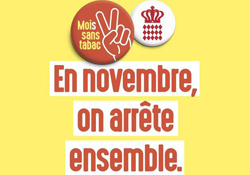Communicating health and the Sustainable Development Goals: experiences from small countries of the WHO European Region

Government of Monaco
One of the 4 key action areas of WHO/Europe’s small countries initiative is to support the implementation of Health 2020 by better engaging the media as a partner. Collaborating with the media to raise awareness of health issues, goals and targets is also critical to the implementation of the 2030 Agenda for Sustainable Development, which calls for the involvement of civil society, the private sector and individuals from every country in order to hold governments accountable and ensure progress.
Communication was therefore a central topic at the Third High-level Meeting of Small Countries, held in Monaco on 11–12 October 2016. It was also the focus of a workshop for communication focal points and journalists from the initiative’s member countries. Both a plenary session and the workshop saw the active participation of country representatives. The experiences they shared confirmed the potential of small countries to pioneer new ways of communicating and implementing Health 2020 and the 2030 Agenda.
The group of communication focal points and journalists discussed different ways of presenting the 2030 Agenda’s Sustainable Development Goal (SDG) indicators, how to develop positive stories on health and avoid sensationalist reporting, and how to manage media relations in a small-country context. Building on their experience of the capacity-building workshop on media and health inequalities, held at the Second High-level Meeting in Andorra in 2015, they shared examples of health-related communication initiatives in their respective countries.
Examples of health communication initiatives from small countries of the WHO European Region
Welfare Watch – Iceland
Iceland’s Welfare Watch project aims to increase understanding of the current and future health and social needs of the population, and to monitor the well-being of various groups and the country as a whole. National experts from different sectors developed a set of social indicators to provide this information and to serve as a basis for policy-making. The Icelandic Ministry of Welfare – responsible for social affairs, health and social security – used these indicators to present journalists with interesting, high-quality information to catalyse public discussions on citizens’ health and welfare. This led to the establishment of a periodic discussion of data and trends, and strengthened good relations with the media.
Building on their positive experience of using the Welfare Watch social indicators, the Ministry defined a new set of public health indicators (disaggregated at the health district level) for communication purposes. These indicators measure public health and the reduction of social inequalities in health to support the establishment of health in all policies and to contribute to the achievement of SDG 3 (Ensure health and well-being for all at all ages) and SDG 10 (Reduce inequality within and among countries).
Eat well, move more – Luxembourg
Luxembourg’s “Gesond iessen – méi bewegen” (Eat well, move more) programme promotes healthy eating and physical exercise, and serves as an example of a whole-of-government, whole-of-society approach to health and well-being. It involves the Ministry of Health (which acts as coordinator); the Ministry of Education, Children and Youth; the Ministry of Sport; and the Ministry of Family Affairs and Integration. It also engages municipalities; involves civil society through schools, preschools, youth associations, and workplaces; and supports individuals by sending out booklets on healthy eating and the benefits of regular exercise.
The programme’s collaboration with the media, including through annual press conferences held by each of the involved ministries, has successfully engaged the population. Coordinating and planning across ministries to agree on a common message in advance was key to this process.
Radio for All – San Marino
San Marino is strongly committed to social communication as well as health promotion. A creative collaboration between the National Institute for Social Security, the country's residential support services, and 4 young people with cognitive disabilities resulted in a unique initiative called “Radio Tutti” (Radio for All). The young people received support to develop radio content sharing their experiences and thoughts on health issues and society. They aired the successful pilot episode in December 2015, and now broadcast monthly.
Moi(s) sans tabac – Monaco
Smoking causes a wide range of diseases and is the leading cause of preventable death. Smokers are aware of these dangers and many want to stop. To help them achieve their goal, the Government of Monaco partnered with the first “Moi(s) sans tabac” (Me/Month without tobacco) campaign, initiated by France’s Ministry of Health and Social Affairs, national health insurance system and national public health agency.
The campaign was inspired by Public Health England’s 2012 Stoptober campaign, and by studies showing that the number of attempts to stop smoking increase by 50% during prevention campaigns. An individual’s chances of giving up smoking increase 5-fold after stopping for 28 consecutive days.
Through community-based communication and prevention activities, the campaign encourages and supports all smokers to stop for 30 days. A number of tools are available to participants, including a website with information on how to prepare and how to increase the chances of successfully quitting; consultations with specialists from any mobile phone or landline; a mobile application providing personalized coaching; and kits distributed freely through partnering pharmacies. Monaco’s health professionals contribute to the campaign and provide support to participants.



